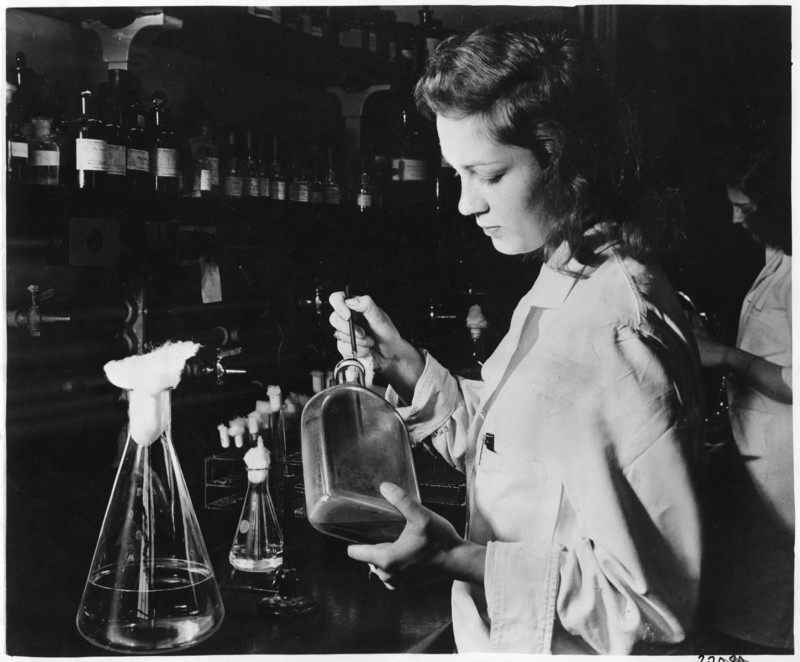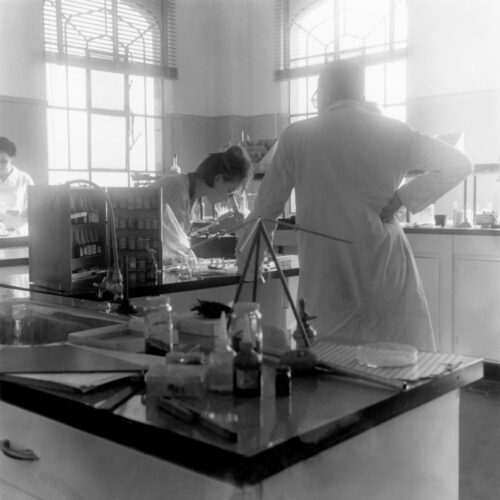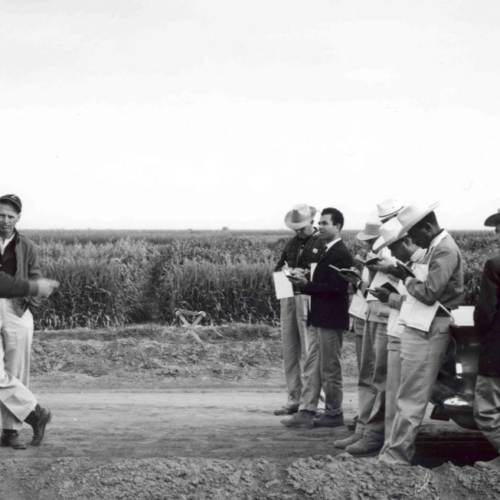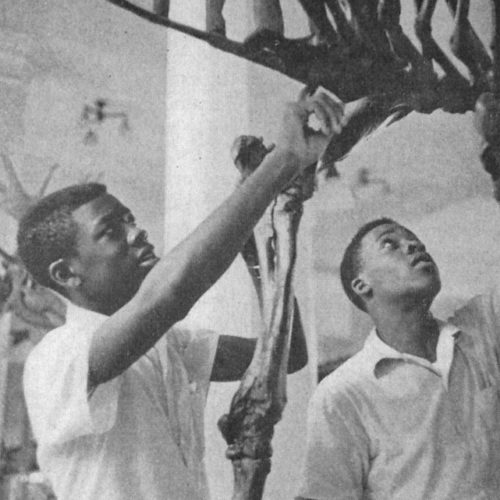Our New Research series provides insight into current archival research at the RAC. It highlights recently published reports submitted by researchers who have received RAC travel stipends to pursue their studies in our archival collections. In this edition, the reports cite from the personal papers of Nelson A. Rockefeller, as well as from records of the China Medical Board, the Rockefeller Foundation, and the Ford Foundation.
“The China Medical Board’s Fellowship Programs and Its Shifting Focus to Taiwan during the Postwar Era, 1951–1973” by Hsinyi Hsieh
Hsinyi Hsieh is a doctoral candidate in the Department of Humanities and Social Sciences at University of California, San Francisco. Her area of interest centers on the dynamics of modern healthcare in East Asia. “The China Medical Board’s Fellowship Programs and Its Shifting Focus to Taiwan during the Postwar Era, 1951–1973” looks at the impact of US philanthropic funding of Taiwan’s postwar medical system. Prior to the communist victory in China in 1949, the China Medical Board (CMB) had focused its grantmaking in that country, in which the Rockefeller-founded Peking Union Medical College (PUMC) was its centerpiece. Following the nationalization of PUMC and the shutdown of CMB’s program for China, the organization needed to move its focus to other countries. Taiwan became an early beneficiary of this new policy direction. Using CMB records at RAC, Hsinyi Hsieh traces the impact that the newly established medical fellowship exchange program had on Taiwanese healthcare. Her study includes important demographics on the recipients of the fellowships. She also notes that as a result of CMB’s attention to the two elite medical colleges in Taiwan, one at National Taiwan University and the other at the National Medical Defense Center, the country transitioned from a Japanese-based system of medical education and care, a legacy of Japanese rule, to a US-based one.
“Academic and Architectural Modernization for Development: Financial and Technical Assistance to the University of Concepción, Chile, 1956–1968” by Giovanna Bassi Cendra
In “Academic and Architectural Modernization for Development: Financial and Technical Assistance to the University of Concepción, Chile, 1956–1968,” Giovanna Bassi Cendra looks at Rockefeller Foundation and Ford Foundation support for that university. Her research at the RAC is a part of a broader dissertation study on the development of Latin American universities during the Cold War. She is particularly interested in how these universities were developed in the shadow of political agendas to boost local economies through greater mining and mineral extraction projects. Exploring these foundations’ archives, she learned that while both philanthropies were eager to help the University of Concepción grow, they focused on different aspects of the University’s efforts. Despite the foundations’ different grantmaking criteria, they both enabled the institution to modernize in ways that served Chile’s overall developmentalist agenda.
Giovanna Bassi Cendra is a doctoral student at Rice University. Her interests focus on modern Latin American art and architecture, and her current research centers on the postwar interconnections of architecture and urban planning with the ideology of “development” and extractive capitalism in Latin America.
“The AIA and Public-Private Collaborations in Response to the 1950 Cusco Earthquake” by Lisa Pinley Covert
At the RAC, Lisa Pinley Covert looked at records related to the philanthropic response to the 1950 earthquake in Cusco, Peru. The damage was devastating and in light of the massive scale of the catastrophe, the United Nations became involved. Dr. Covert’s report, “The AIA and Public-Private Collaborations in Response to the 1950 Cusco Earthquake,” focuses on a rather unusual aspect of the international recovery efforts – the involvement of the American International Association for Economic and Social Development (AIA). She found that the United Nations turned to AIA director Robert Hudgens to evaluate what needed to be done in the aftermath of the quake. At least on the surface, this was unexpected, since this organization primarily concentrated on rural development. For Pinley Covert, this raised some interesting questions about why Hudgens was selected, and how this assignment aligned with the AIA’s mission. Perhaps more significantly, it highlighted the early postwar challenges of private-public partnerships for international development projects. As she notes, despite the UN’s active interest in developing an aid plan and the initial enthusiasm of the Peruvian government for this agenda, the recovery and rebuilding was slow and ultimately incomplete. A combination of insufficient funds, bureaucratic entanglements, and redirected international aid agendas unfortunately ensured that the Peruvian victims continued to struggle for years in the aftermath of the earthquake.
Lisa Pinley Covert is a professor of history at the College of Charleston. She has a particular interest in the cultural patrimony policies of Peru and Mexico and received a Fulbright Global Scholarship award to study policies relating to the preservation of Latin American historical sites.
“Planned or by Accident? The Inception of the Chinese Materia Medica Research Program at the Peking Union Medical College” by David Chen
David Chen’s research report, “Planned or by Accident? The Inception of the Chinese Materia Medica Research Program at the Peking Union Medical College” sheds light on an important episode in the early history of this institution, which was established by Rockefeller philanthropy. During the 1920s, PUMC had a materia medica program, in which China herbal medicines were investigated by its scientists. This research led to the discovery of ephedrine, an important anti-asthmatic drug. Dr. Chen observes that this medicine, derived from the traditional herb ma-huang, constituted the most important Chinese contribution to Western medicine during China’s Republican Era. Studying the archival records of the China Medical Board and the Rockefeller Foundation, he learned that this program was created not by some grand vision for research in this field, but instead, as a result of a combination of pragmatic administrative and personnel decisions, accompanied by the personal research interests of two PUMC faculty members.
David Chen has been coming to RAC as an independent scholar for over fifteen years. With a deep interest in the history of modern Chinese medicine and life sciences, he has systematically explored various RAC collections to reveal important stories about developments of these fields in China.
About the RAC Research Stipend Program
The Rockefeller Archive Center offers a competitive research stipend program that provides individuals up to $5,000 for reimbursement of travel and accommodation expenses. Learn more on our Research Stipend page



